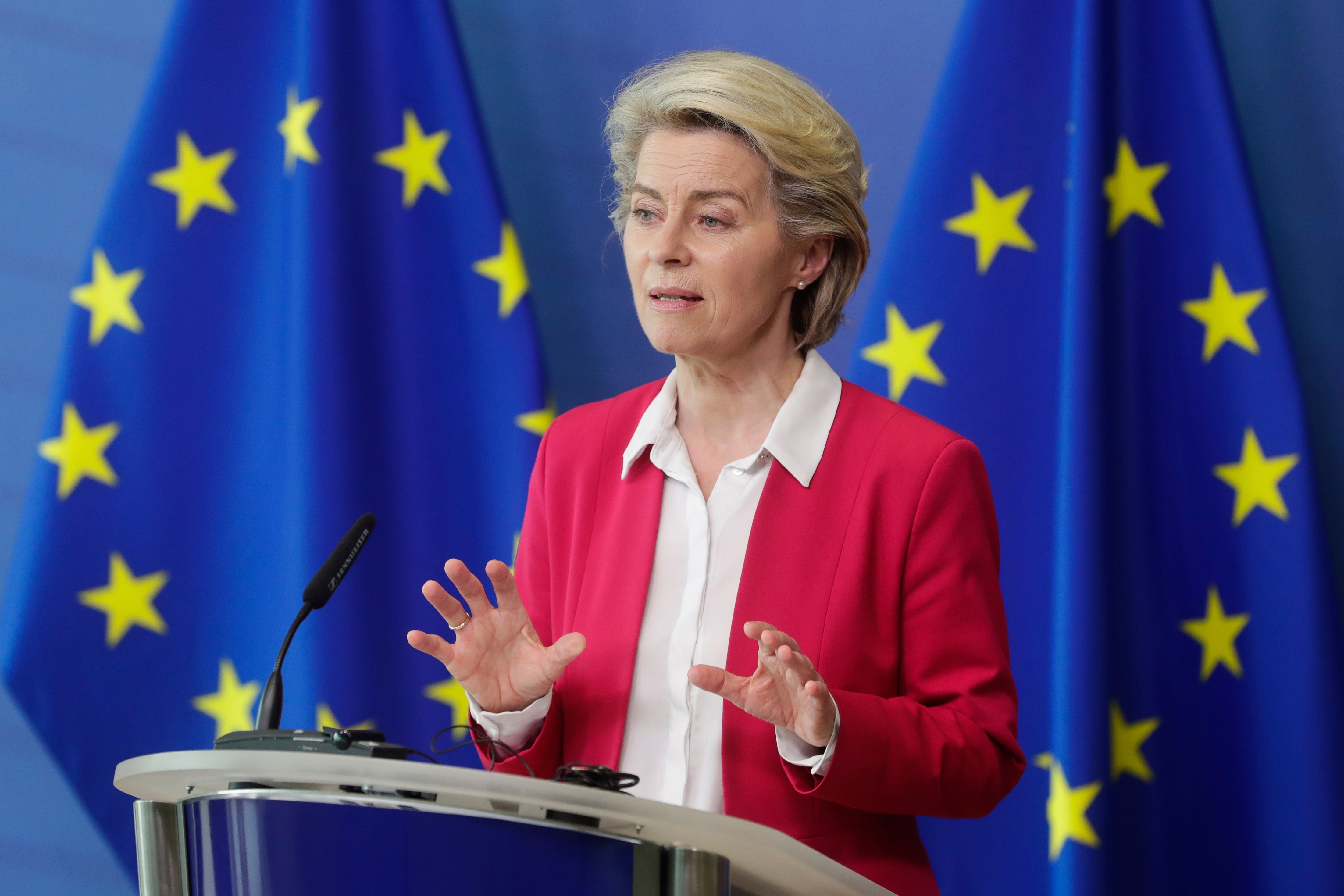EU chief gives initial approval to national recovery plans
European Union authorities are moving a step closer to deploying the bloc’s massive pandemic recovery fund

European Union authorities are moving a step closer to deploying the bloc’s massive pandemic recovery fund as the president of the 27-nation bloc's executive commission begins a tour of some EU capitals to announce the initial endorsement of national spending plans.
European Commission President Ursula von der Leyen arrived Wednesday in Portugal, which was the first EU member to formally present ideas for spending its share of the 750 billion euros ($909 billion) earmarked to help countries out of a sharp economic downturn caused by COVID-19.
The money is to be distributed in the form of grants and credit. The EU’s 1.1 trillion-euro ($1.3 trillion) seven-year budget from next year will also help national economies.
In Portugal, Von der Leyen was expected to tell Prime Minister António Costa that his government’s plan for how to use its 16.6 billion-euro windfall ($20 billion) has earned the European Commission’s blessing. Final approval of EU countries’ plans is still weeks away.
Portugal says much of its expenditure will go to improving the public health network, reducing pollution from public transportation, making housing more energy efficient and buying computers for schools.
So far, 23 of the EU’s 27 countries have submitted their spending plans to Brussels authorities, which vet them to ensure they are in line with the bloc’s policy goals and plan to follow up to check whether they are abiding by their commitments.
After Portugal, Von der Leyen was scheduled in Spain later in the day to meet with Prime Minister Pedro Sánchez.
She plans to visit Greece Denmark and Luxembourg later this week.
Bookmark popover
Removed from bookmarks